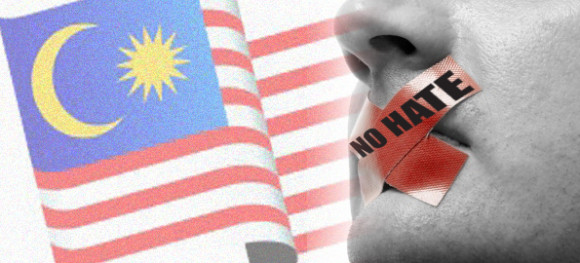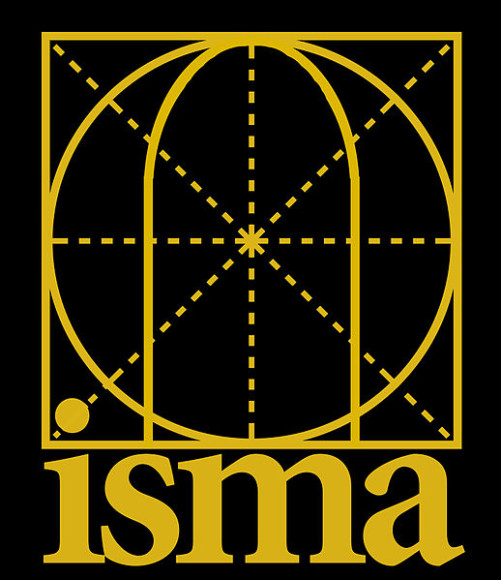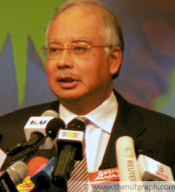IT appears that open demonisation of minority ethnic groups such as Christians and Chinese Malaysians is becoming more commonplace in Malaysia, with groups such as Ikatan Muslimin Malaysia (Isma) warning of a threat of Christianisation and of Malay Muslim Malaysians losing their position in Malaysia.
Some have called for laws to be enacted against speech that advocates racial or religious hatred. But does Malaysia need such laws? The Nut Graph asks political scientist Dr Wong Chin Huat.

TNG: The Camden Principles on Freedom of Expression and Equality recommend that states adopt legislation prohibiting the advocacy of “national, racial or religious hatred that constitutes incitement to discrimination, hostility or violence”. Is it time for Malaysia to adopt laws against such types of hate speech?
It all depends on what sort of laws are enacted. I would be very pleased if we had a law against hate speech abiding by the Camden Principles. These principles clearly define what type of speech advocating racial or religious hatred should be prohibited.
Each term is carefully defined. Hatred is defined as “intense and irrational emotions of opprobrium, enmity and detestation towards the target group”. Advocating such hatred would involve “an intention to promote hatred publicly towards the target group”. And it is not enough just to advocate hatred – it must amount to incitement to discrimination, hostility or violence against persons belonging to those groups.
The principles also protect free speech by specifically excluding certain types of speech from the definition of hate speech. This includes “the promotion by different communities, of a positive sense of group identity”, and criticism and debate about “ideas, beliefs or ideologies, or religions or religious institutions, unless such expression constitutes hate speech [as defined above]”.
In brief, the Camden Principles’ position on hate speech is driven by its concern over discrimination, hostility and violence in public life due to intentional speeches. It does not target private views. It does not even target publicly expressed views if they lack the intention to cause hatred, or fails to create an imminent risk of discrimination, hostility or violence.
The Camden Principles are against irrational emotion that threatens the use of reason. They are for, not against, reason.
How likely is it that such a law would be enacted in Malaysia?
There are two common forms of political correctness that call for the curtailment of free speech in Malaysia, that are quite different from what the Camden Principles advocate.
The first form denounces emotional offences. If I feel tersinggung (offended) by you, then your free speech should end then and there. This form is often associated with the conservative or communal constituency. It encourages a race to the bottom of emotional fragility. The more emotionally fragile a person is, and the more likely he or she is to respond violently, the more society should adjust to his or her preference. It pacifies those who scream the loudest and rewards those who are most willing to threaten violence.
The second form, often held by well-intended liberals or progressives, denounces positions that do not contribute to their ideal society. The best example of this is the call for mono-ethnic or mono-religious parties to be banned to overcome the ethnic or religious divide. Similarly, sexist or homophobic language should be banned. This position fails to appreciate non-legal alternatives in sanctioning undesirable values. Instead of combating racism, sexism or homophobia through the use of reason and civility, it turns to the state to crack down on such behaviour.
My fear is that any law prohibiting hate speech in Malaysia will cater to the first or both forms of political correctness above. In the name of harmony, reason may just die a custodial death.

Isma deputy president Aminuddin Yahaya has said that their invective is in response to “chauvinist” non-Malay and non-Muslim complaints on marginalisation and claims that Malaysia is secular. Is there a difference between the calls for a secular state and equality, and Isma calling non-Malays migrants that intruded into the Malay land? Should both groups be equally entitled to express themselves?
I think Isma has every right to think that non-Malay Malaysians are intruders. To put it in historical perspective, Arabs and Indian Muslims, labelled “Darah Keturunan Arab” (DKA) and “Darah Keturunan Keling” (DKK), were similarly despised by “pure-blood” Malays in the early 20th century. This hostility disappeared when group comparison was recast as rivalry between Muslims and non-Muslims.
Centuries earlier, weren’t the Minangkabau, Bugis and Acehnese intruders, too? We hear less of group conflicts between the earlier and later settlers of Nusantara stock because the latecomers were largely assimilated.
So, the real issue Isma has is not so much intrusion, but the minorities’ resistance to assimilation. Isma is merely echoing a position contained in our history textbooks which talk about a “plural society” and cite JS Furnivall, lamenting how we are not a mono-cultural nation-state.
To me, Isma is just taking an extreme position of mono-culturalism and ethnocentrism. Yes, they are crasser and more vulgar than other players – even Perkasa. But should they be punished for their lack of diplomacy and “honesty”?
When should any group be punished? Where should we draw the line? It can’t be on the ground of promoting discrimination. Group-based discrimination, or differentiated citizenship, is a defining feature in our constitution, with Article 153 which talks about the special position of the Malays and natives of Sabah and Sarawak. Should Isma be punished for rudeness in advocating basically what Umno and other champions of Malay supremacy have been saying all this while? Are we saying that all such speech should be criminalised?
Given our political and social reality, I would draw the line only on violence. As long as you don’t advocate violence as a means to achieve your end, you should have every right to say what you want to say. Let Isma say what it wants to say. Let defenders of secularism air their views, too. No one needs to point to another party, like young siblings complaining to their parents or schoolchildren to their teacher, “S/he/they started it first!”
In fact, this is what I fear about any law in the name of national harmony. It may well become another convenient truth to selectively police free speech so that we can have lopsided debates. I think Malaysians need to be bold to revisit what I call the 1946 Hangover — the unresolved tension between multi-culturalism and common citizenship. And such revisiting can’t be done in silence or selective airing of views.
We need to allow and endure unpleasant noises for us to stay sober and find real peace. Isma is, in fact, doing the nation a great service in reminding us of our unfinished business.

Prime Minister Datuk Seri Najib Razak, meanwhile. seems to fear a threat to Islam from “human rights-ism” based on humanism, secularism and liberalism. A few days later, Najib then said the government was committed to the principles and values of human rights. What response and leadership is needed to create space for different groups to negotiate the competing aims and visions of Malaysia that they hold?
If a government cannot lead, it should at least not confuse. I think Najib simply fails both the maximum and minimum tests for a head of government. In my humble opinion, Malaysia today may be able to learn some lessons from Poland in the 1980s, when the decline of communist rule was increasingly evident. The Polish invested in and worked through civil society to prepare for a new Poland after the transition, rather than engage the declining state.
We have, of course, more freedom and greater democratic space than the Polish in the 1980s. But I am not sure if we are reflecting thoroughly on what’s wrong with the system that produces the likes of Isma. We need to discuss and revisit issues like multi-culturalism and common citizenship, and face the root causes of the tension in our society. Instead, so many just want to crack down on the symptoms of these tensions, such as Isma, to avoid facing the root causes. ![]()
Wong Chin Huat is a political scientist by training and was a journalism lecturer prior to joining the Penang Institute, a Penang government think tank. If readers have questions and issues they would like Wong to respond to, they are welcome to e-mail editor@thenutgraph.com


Sunna Sutta says
An excellent analysis by Chin Huat!
I strongly agree that there is no need for an anti-hate speech law and that the government should instead lead by example in not promoting racial animosity and bigotry. In failing to do that, the BN-led government has paved the way for the rise of what I would call “uncivil society” in Malaysia led by the likes of Isma and Perkasa which counteract the good work of civil society NGOs.
We need to follow the example of the USA where society itself self-regulates against racism, sexism and bigotry of all kinds. Take for instance the stern action of the NBA in imposing a lifetime ban on Donald Sterling for using the dreaded n-word on Magic Johnson. Also consider the case of the police commissioner in a small New Hampshire town who uttered the n-word in reference to Obama. He refused to apologise but had to pay the price of resigning from his post.
While it may be true that America took almost 100 years to eliminate slavery and 200 years to end racial segregation in the Southern states, it may not mean that Malaysia can succeed in the same quest if we are given another 150 years. The difference between the USA and Malaysia is the commitment that “all men* are created equal” was enshrined in the American Declaration of Independence in 1776. In contrast, Malay political leaders in government and extremist Malay NGOs have interpreted the “special status” accorded to bumiputeras in our constitution as something that is hewn in stone and meant to last forever. This has encouraged such extremists to label non-bumiputeras as “pendatang” and “intruders”.
*This is taken to mean “humans” in modern politically-correct modern speak.
neptunian says
Another set of Laws for the BN Govt to use as a weapon against critics and political opponents… I think NOT. The Govt is already using the Sedition act to indiscriminately persecute its critics, we do not need another one.